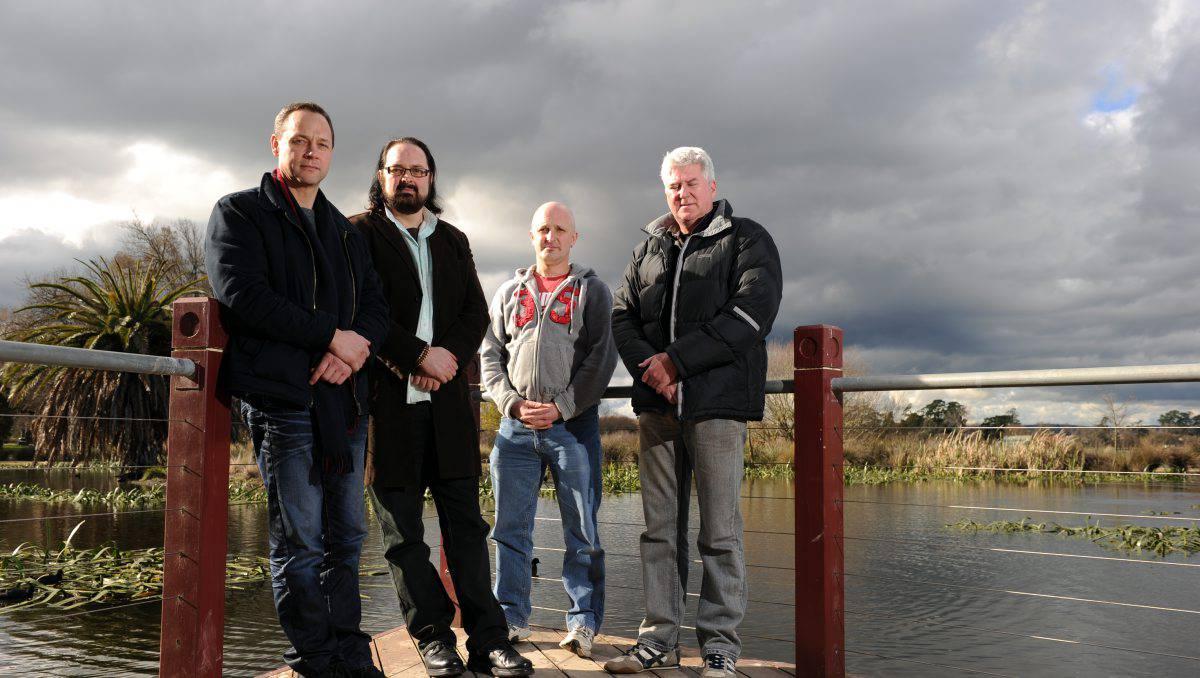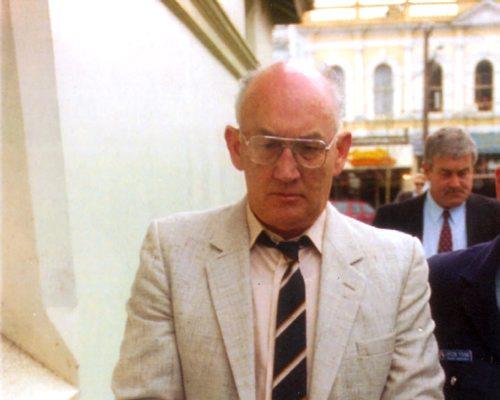Clergy Abuse: a Cry for Help
By Fiona Henderson
THE full extent of the horror inflicted on Ballarat children by Catholic priests Gerald Ridsdale and Ronald Claffy, and Christian Brothers Robert Best, Edward Dowlan, Stephen Farrell and Gerald Fitzgerald may never be known. We know 107 cases have been substantiated during former Bishop Ronald Mulkearn’s 26-year term from 1971 until 1997. We know through the recent state government inquiry into institutionalised child abuse, the Catholic Church Insurance has a list of clergy they would not cover because of their paedophilic activities, yet they remained in service and were just relocated. We know 40 of the victims committed suicide. We also know this is probably just the tip of the iceberg. One perpetrator alone allegedly boasted he had hundreds of victims. Best and Farrell are still in jail, Ridsdale’s parole hearing decision has been put on hold while new incidents are investigated, Dowlan left the Christian Brothers after serving his sentence, changing his name and receiving a payout of $135,000, Claffy received a good behaviour bond and Fitzgerald died before he could face justice. But what about all the victims? Many broke down as they told their heart-rending stories at the state government inquiry into institutionalised child abuse in Ballarat in March. Many will lay their broken hearts on the line again at upcoming Royal Commission into Child Sexual Abuse hearings. Many can’t bring themselves to speak but rely on group submissions to talk for them. Many struggle to get out of bed in the morning. Many are suicidal. Many can’t hold down jobs, relationships, friendships. So - turning the media spotlight from the villains to the victims - what can be done to help Ballarat survivors? What is needed to help them get back the life taken from them at a young age? Peter Blenkiron and Andrew Collins are the public faces of the Ballarat survivors. Together, the pair has been fighting hard to get victims back on track emotionally. And - absolute bottom line - they don’t want anyone else to die. But it is taking a toll. "Specialist social workers are needed for every clergy abuse "hot spot". Survivors can’t do this alone," Mr Blenkiron said. "They need support to maintain basic coping strategies and accessing specialist counselling. "They need help from groups like Moving Towards Justice, with reimbursement of costs, with reporting to police, with submissions, getting legal help and more. "Survivors supporting survivors is okay to a point but eventually it’s like drowning. People trying to save other drowning people - no-one survives." Federal government funding was recently allocated to 28 national organisations to provide counselling and support to survivors, particularly during the royal commission hearings. But Mr Blenkiron was critical of a decision to give $45 million of funding to Relationships Australia Victoria, Berry Street and Drummond Street, rather than the 15 Centres Against Sexual Assault (CASA). "Relationships Australia will be great for families and secondary victims but, as for the primary victims, it’s like going to your GP and expecting him to perform brain surgery. "There have been 40 suicides in Ballarat. Most people have lost their faith in life because they were abused by a representative of God. "It destroys for most any belief in the afterlife, or a God that can support you while you heal." Mr Blenkiron said some very good private practitioners in Ballarat charge for their service, but CASA offers a free service, with counsellors who specialise and are experienced in clergy sexual abuse. "There was one guy whose life was going okay but he felt there might be a time bomb ticking so he got some really good help and he hasn’t really missed a beat and the harm has been minimised. "I’ve sent guys in there who have been suicidal and they’ve managed to get them back. They’re still damaged but they are going there and sticking with counselling." Mr Blenkiron’s stance is supported by American psychotherapist Mike Lew, who has spent 25 years working on child sexual abuse recovery, particularly in males. Mr Lew conducts lectures and workshops throughout the United States, Canada, Europe, Australia, New Zealand, Africa and Asia. "I have a great deal of respect for the work of Relationships Australia. I’ve done workshops and professional training sponsored by them and have met a number of highly competent and experienced counsellors who work for them," Mr Lew said. "However, the proper venues for working with survivors of sexual abuse are the CASAs and/or private practitioners who are trained and experienced in this area." Mr Lew said it was not simply a relationship issue but needed someone understanding of child sexual abuse, institutional abuse and abuse in a religious context. "To reduce this to a ‘relationship’ matter minimises the issues for the survivors in a potentially damaging way. "The survivors must be treated with the utmost respect, and the situation must be taken very seriously." Mr Lew said CASAs, including Ballarat, must receive funding immediately, employ more staff if needed and provide groups and workshops for survivors and their families, along with specific training for its counsellors. "To do less would be appalling, and serve to exacerbate the effects of the abuse. "Although many of the counselling and service needs of clergy abuse survivors overlap with those of survivors of sexual child abuse generally, there are also specific needs that need to be focused on in the area of institutional abuse, religion and spirituality. "If the disclosures of the child victims and/or adult survivors have been minimised, ignored or deflected by authorities, that also has to be addressed." Survivor Brett, 38, said he had never seen a counsellor in his life before attending CASA on a fortnightly basis for a few months recently. "I’ve just stopped going because I was progressing really well but it was well worth it," Brett said. "I just needed basically someone to talk to about it. I’ve never talked about the situation before and I thought it was best to get it out and get some healing. "I could tell my counsellor anything, even all the thoughts I was having. It was a great support." But, Ballarat MP Catherine King said more than 100 applications were received from eligible organisations to deliver counselling, support and case management services to survivors and their families before, during and after the royal commission. "Organisations were selected through a strict open competitive selection process to ensure the best outcomes for clients," Ms King said. She said the federal government would monitor the demand for more services and client needs over the commission’s course. However, Relationships Australia Victoria social inclusion senior manager Sue Yorston said the federal government funding would enable them to provide very broad based support to survivors. "That may include family members or someone who has experienced sexual abuse," Ms Yorston said. She said RAV would help anyone dealing with the royal commission, including helping them put their story together and being a supportive presence at hearings. "All of our staff are trained at dealing with trauma and abuse. It’s a thread that runs through all our work." Ms Yorston said survivors also needed to be aware they had the choice in the support they received. "There are a whole range of people in Ballarat who can do this work - CASA, RAV, private counsellors. "The person has the choice and can decide who best suits them." She said RAV would ensure any care was continuous with the person’s current support and would be long-term and intensive. The final recommendations from the inquiry will be handed down by the Family and Community Development Committee on September 30. Royal Commission private hearings begin in Victoria next month, with the entire inquiry expected to take three years, with an interim report due June 30 next year.
|
.
Any original material on these pages is copyright © BishopAccountability.org 2004. Reproduce freely with attribution.


